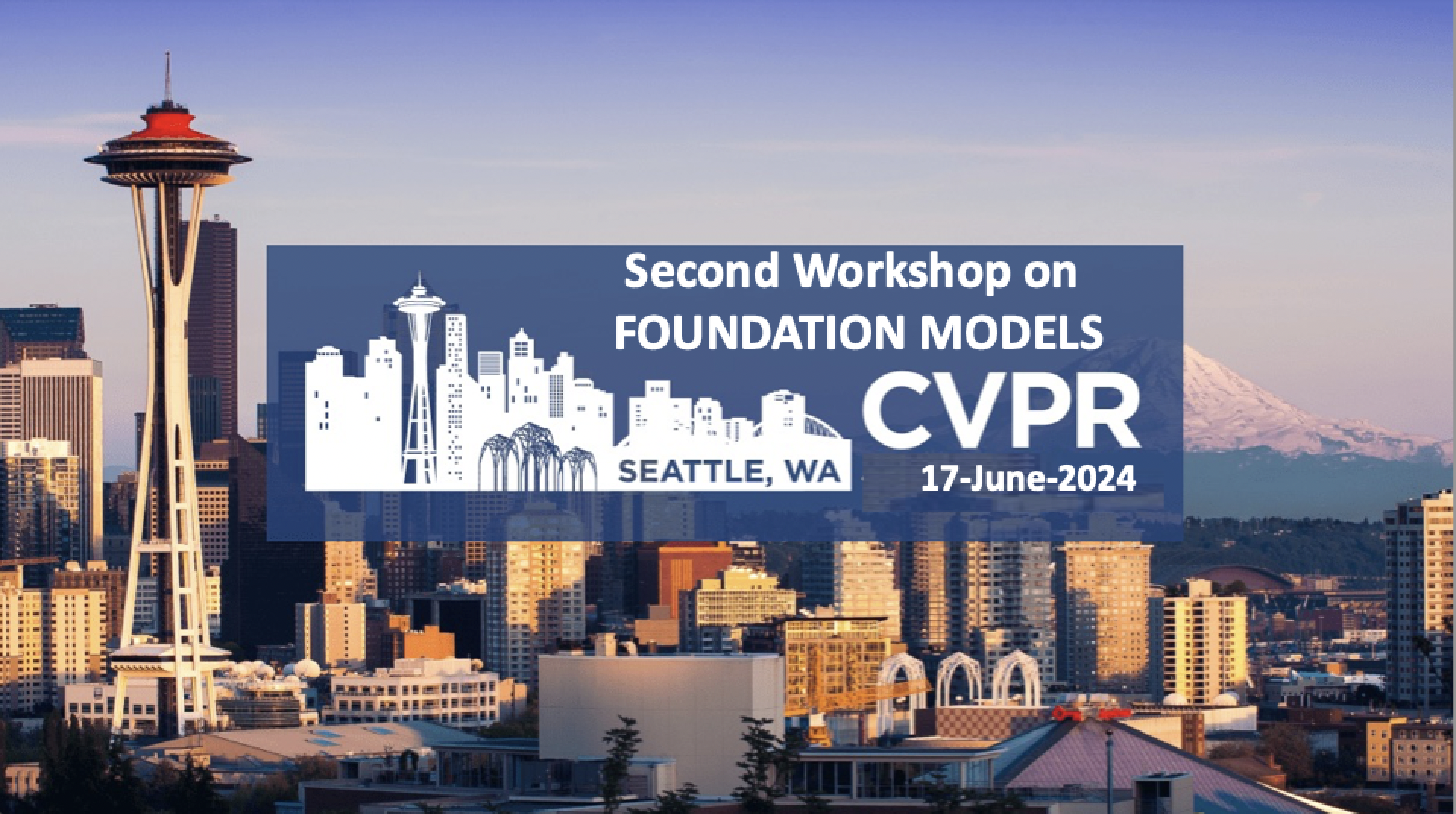When: June 17, 2024 Where: Seattle USA Summit 434
About the workshop
Recent years have witnessed remarkable advancements in foundation models for natural language processing and computer vision. Trained on large-scale diverse datasets, these models serve as a basis for various downstream tasks, offering adaptability and robustness. The Second Workshop on Foundation Models aims to provide a platform for exploring the latest research and practical applications of vision foundation models and large language models (LLMs). Our workshop will focus on bridging the gap between cutting-edge research in foundation models and their real-world applications across different domains, including healthcare, earth sciences, remote sensing, biology, science, agriculture, and climate sciences.
We encourage submissions exploring theoretical insights into vision foundation models (VFMs) and large language models, efficient foundation model architectures, and hybrid network designs combining VFMs with convolutional and graph-based models. Additionally, contributions addressing challenges and strategies involved in leveraging VFMs and LMMs for tasks such as image and video generative models, unsupervised, weakly, and semi-supervised learning settings, multi-modal foundation models, and improving semantic understanding of visual content in multi-spectral data are welcomed. The workshop also aims to accelerate the adoption of foundation models in various industrial applications by investigating inherent biases, blind spots, and strategies for safe and privacy-preserving deployment. We welcome papers reporting experimental results on accelerating the training and inference time of foundation models, as well as their adaptation for low-level and high-level vision problems, mobile devices, and embodied AI.
Important Dates:
Archival submissions:
• Paper Submission Deadline: Mar 20th, 2024 (11:59 p.m. PST)
• Notification of Acceptance: April 3th, 2024 (11:59 p.m. PST) (tentative)
• Camera-Ready Papers Due: April 13th, 2024 (11:59 p.m. PST)
Non-Archival submissions:
- • Paper Submission Deadline: April 18th, 2024 (11:59 p.m. PST)
• Notification to Authors: April 26, 2024 (11:59 p.m. PST)

